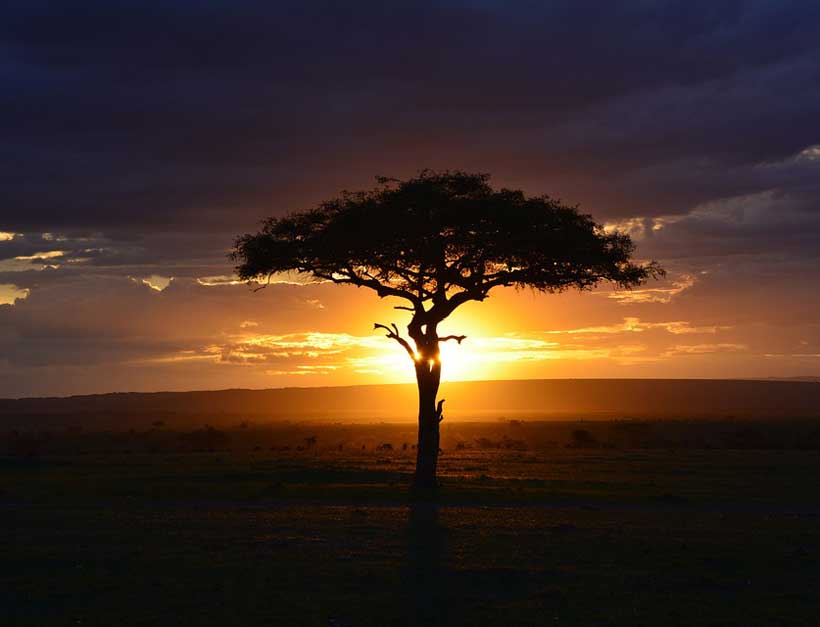Africa, the land of good, peace and natural wealth that is unparalleled, but under the circumstances, this continent have been under the yoke of foreign colonialism for long and bitter years, suffering from the problems of poverty and deprivation and being classified as “third world.” The situation is even worse with the epidemics and serious diseases that have plagued this continent, in addition to the endless wars, related to religious, political and societal divisions. This bad situation, which is unacceptable in the 21st century, urges the world to take responsibility.
The African continent has been a source of wealth for many who are “not African.” The African continent has been used for many years to build nations outside the African borders and serve the world’s people. In addition to the external hand that dominated and took over the resources of African land, the only thing that is incredible “rich land and a poor and hungry people.”
Africa is rich in gold, diamonds, chromium, cobalt, platinum and uranium. Some African countries such as Algeria, Angola, Congo Brazzaville, Gabon, Libya and Nigeria, for example, rely on the export of crude oil for about 70-95% of foreign exchange. Botswana relies on exporting diamonds for 80% of foreign exchange, as well as Zambia, which relies on copper exports for 80% of foreign exchange. Niger relies on uranium, which accounts for 96% of foreign exchange. But there is another problem: the inevitability of dependence on the outside because of the link between the economy of these countries with import and export, specifically its connection with Europe and America. Talk of full African independence will not be realistic because of the economic ties of the Great Powers.
Africa is also dependent on many foreign countries for its undeniable debt, aid and donations. Africa is not yet ready to pursue a policy of giving up foreign aid and talking about Africa, self-sustaining and not in need of other countries. The debt problem in many countries of the African continent has reached high rates. The average ratio of debt to GDP in sub-Saharan Africa increased from 51% to about 100% during 1982 and 1992.It is therefore necessary to develop an economic strategy for the African continent that makes it a fully sovereign geographical area. Since sustainable development begins with economic growth, all the problems of the continent will be resolved if a viable economic policy is pursued. A large proportion of Africa’s debt comes from the colonial powers themselves, such as France and Britain.
The endless wars in many African countries are a source of constant tension, making the African continent classified as politically and security unstable area, which threatens the tourism sector and the pace of economic growth and makes the investor prefer to invest in other areas more secure and stable. African countries are required to pursue a strict security policy that works to root out extremism and rein in terrorist and subversive groups that have brought destruction, devastation and economic decline to the country.
The extreme poverty that afflicts the African continent is due to unfair policies that do not take into account the criteria of community development in many cases, and most importantly, the accumulated external debt that hinders the process of social and economic development. As the African continent, as mentioned earlier, is a region rich in natural resources, it is therefore important to make use of these resources, and not to leave them to foreign countries, in other words, not to allow the African continent to be an open and unregulated territory.
The most serious diseases in the world today are rampant and widespread in the African region, such as malaria, kidney disease and AIDS, which plague African people. International organizations and bodies such as the World Health Organization are now required to work, move and intensify efforts to reduce the prevalence of these diseases.
The illiteracy rate is very high on the African continent and this is unacceptable nowadays. As there is no way to progress and develop except in education and the dissemination of the culture of science, International educational institutions should focus on the poor and educate them and increase the proportion of schools and universities in bilateral and collective cooperation.
This miserable situation in the African continent has long led many to think of emigration or resort to other countries. But most of them live in difficult conditions in foreign countries, and the phenomenon of asylum and intensive migration leads to the abundance of cheap labor in foreign countries and provides them with difficult jobs that are not easy for the countryman to carry out.
The African continent is rich in natural resources and has surplus labor, which is sufficient to achieve self-sufficiency if accompanied by a sound economic and social policy. Therefore, African governments and the African Union must take unified decisions and not follow the policy of dependency because such a policy will only increase the African continent deficit and economic and social decline.
The governments of the African countries should make their relations with the countries of the world friendly regardless of the financial or military power of the other side so that the African countries will not remain in the position of the weak. All this indicates that African countries are capable and need only to unite and work on sound policy. Poverty in African countries can be solved if natural resources are exploited well and in the interest of African countries and not of other countries.


